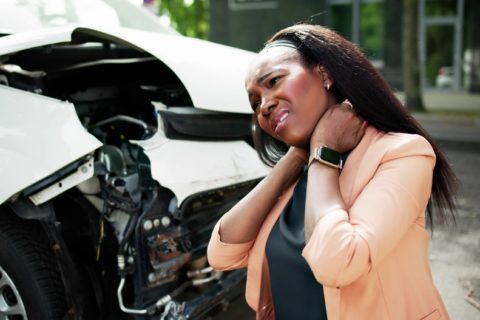What To Do After a Car Accident in San Jose
Being involved in a car accident can be overwhelming, leaving you unsure of what steps to take next. You may be wondering: What should I do after a car accident in San Jose, CA?
Immediately after an accident, check yourself and others for injuries, ensure safety by moving to a safe location if possible, call 911 if needed, exchange information with the other driver(s), document the scene by taking photos, and contact your insurance company to report the accident; avoid admitting fault or discussing policy limits with anyone other than your own insurance company.
Having helped countless accident victims recover compensation for their injuries, I know that taking the right steps immediately after a crash can protect your legal rights. Below, we’ll outline each step in detail so you can safeguard your health, finances, and potential claim.

What Should You Do Immediately After an Accident?
After a car accident in San Jose, you should:
- Call 911: Call 911 immediately to report the accident and request emergency services.
- Move to safety: If possible, move to a safe location.
- Get medical care: See a doctor as soon as possible, even if you don’t feel injured.
- Exchange information: Get the names and insurance information of the other drivers involved.
- Take photos: Take pictures of the vehicles and any damage.
- Call the police: Call the police within 24 hours if anyone was injured or killed.
- File a report: File a DMV report within 10 days if someone was injured or killed, or if the damage is over $1,000.
- Contact your insurance: Contact your insurance company within 24 hours.
- Consider contacting a lawyer: Consider contacting a lawyer if you were seriously injured, your insurance isn’t paying, or multiple cars were involved.
It’s important to report the accident, even if it seems minor. The police report can help determine fault and support your claim.
You should avoid admitting fault or saying “sorry” after an accident, as this could affect your insurance claim.
How Long Do You Have to File a Personal Injury Claim in California?
In California, you have two years from the date of an injury to file a personal injury lawsuit. This is known as the statute of limitations.
When does the statute of limitations start?
- The statute of limitations starts on the date of the injury.
- If the injury isn’t immediately discovered, the statute of limitations may start on the date you become aware of it. This is known as the discovery rule.
What happens if I miss the deadline?
- If you miss the deadline, you likely won’t be able to seek compensation from the responsible party.
- The court will likely dismiss your case.
Other statute of limitations time limits:
- Property damage: 3 years from the date of the damage
- Medical malpractice: 1 year from discovery, but no more than 3 years from the injury
- Government claims: 6 months from the date of the incident
- Breach of a written contract: 4 years from the date the contract was broken
- Breach of an oral contract: 2 years from the date the contract was broken
You should start the claim filing process as soon as possible.
What Should You Avoid Doing After an Accident?
After a car accident in California, you should avoid: leaving the scene of the accident, admitting fault, arguing with the other driver, signing any documents without consulting a lawyer, speaking to the other party’s insurance company without legal representation, and not seeking medical attention even if you feel okay; always ensure to exchange information with the other driver, call the police if necessary, and document the accident with photos and details.
Key points to remember:
- Do not leave the scene:Leaving the accident site could result in hit-and-run charges, even if the damage seems minor.
- Do not admit fault:Avoid saying anything that could be interpreted as admitting fault for the accident, as California operates on a comparative negligence system.
- Do not sign documents without legal advice:Don’t sign any settlement agreements or statements regarding fault without consulting a lawyer.
- Document the accident:Take pictures of the damage to all vehicles, the scene, and any injuries.
- Seek medical attention:Even if you feel fine, get checked by a doctor to document any potential injuries.
- Contact your insurance company:Inform your insurance company about the accident, but be cautious about discussing details of the crash.
Should I File an Insurance Claim If I am Not at Fault?
Yes, even if you are not at fault in an accident, you should still file an insurance claim with your company; this helps protect your rights and ensures you are not held responsible for damages you did not cause, and allows you to pursue compensation from the at-fault driver’s insurance company.
Key points to remember:
- Always report the accident:Regardless of fault, contact your insurance company to report the accident.
- File a claim with the at-fault driver’s insurance:If you are not at fault, you will usually file a claim with the other driver’s insurance company to seek compensation.
- Protect yourself from potential liability:Even if you are clearly not at fault, the other driver might still file a claim against you, so reporting the accident to your insurance company can help manage this situation.
Whose Insurance Company Do I Call After an Accident?
After a car accident, you should always call your own insurance company first, regardless of who is at fault; they can guide you through the process and help manage your claim even if the other driver is responsible.
Key points to remember:
- Contact your insurance company:Even if you believe the other driver is clearly at fault, it’s best to report the accident to your own insurance company first.
- Gather information:Make sure to collect details from the other driver, including their insurance information, license plate number, and contact details.
- No-fault states:In some states with “no-fault” insurance laws, both drivers would file claims with their own insurance companies, regardless of who caused the accident.
Do I Still Pay the Deductible If I’m Not at Fault?
Yes, even if you are not at fault in a car accident, you typically still need to pay your insurance deductible when filing a claim with your own insurance company; however, your insurance company will then try to recover that amount from the at-fault driver’s insurance through a process called subrogation, meaning you should eventually get your deductible back.
Key points to remember:
- Paying upfront:You will usually need to pay your deductible upfront when filing a claim, regardless of fault.
- Subrogation process:Your insurance company will then try to recover your deductible from the at-fault driver’s insurance company.
- Exceptions:You might not need to pay your deductible if you are able to directly claim against the at-fault driver’s insurance without using your own collision coverage.

How Can a Personal Injury Attorney Help After an Accident?
A personal injury attorney can help after an accident by investigating the incident, gathering evidence, communicating with insurance companies on your behalf, negotiating settlements, and if necessary, filing a lawsuit to ensure you receive the maximum compensation possible for your injuries and damages, allowing you to focus on your recovery while they handle the legal complexities involved.
Key ways a personal injury attorney can assist you after an accident:
- Investigating the accident:Gathering evidence like police reports, witness statements, photos, and medical records to establish liability and the full extent of your injuries.
- Handling communication with insurance companies:Contacting the at-fault driver’s insurance company, reviewing settlement offers, and negotiating on your behalf to ensure you receive a fair amount.
- Calculating damages:Assessing your medical expenses, lost wages, property damage, pain and suffering, and other relevant losses to determine the full value of your claim.
- Legal advice and guidance:Explaining your legal rights, outlining the claims process, and advising you on the best course of action based on your specific situation.
- Filing a lawsuit:If negotiations fail to reach a satisfactory settlement, your attorney can initiate a lawsuit and represent you in court.
- Expert witness consultation:Working with medical experts to assess your injuries and provide supporting testimony in your case if needed.
When to consider hiring a personal injury attorney:
- Serious injuries: If you have significant physical injuries requiring extensive medical treatment.
- Complex liability: When the fault for the accident is disputed or unclear.
- High medical costs: If your medical bills are substantial.
- Uncooperative insurance company: When the insurance company is not offering a fair settlement. Can you still get compensation if you were partially at fault?
Yes, California follows a comparative negligence rule, which means you can still recover compensation even if you were partially responsible for the accident. However, your compensation will be reduced by your percentage of fault. For example, if you were found 20% at fault, your compensation would be reduced by 20%. A skilled attorney can minimize your level of fault and maximize your recovery.
Speak with a San Jose Personal Injury Lawyer Today
If you were injured in an accident, don’t risk handling your claim alone. The attorneys at Scher, Bassett & Hames have decades of experience representing injury victims in San Jose and surrounding areas.
Call Scher, Bassett & Hames today at (408) 739-5300 for a free consultation. We will evaluate your case, explain your legal options, and fight to secure the compensation you deserve.
Resources:
- California Department of Motor Vehicles (DMV) – Reporting an Accident
- California Office of Traffic Safety – Road Safety & Crash Data
- Insurance Information Institute – What to Do After a Car Accident
- National Highway Traffic Safety Administration (NHTSA) – Traffic Safety & Crash Data
Further Reading:
- What Are Lawyer’s Fees for Car Accident Injuries in California in 2025?
- How Long Does a Personal Injury Lawsuit Take in California?
- What is the Personal Injury Trial Process?


